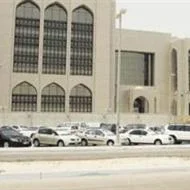The UAE cabinet decided to limit the employment of limited-skill expatriate workers and to encourage the employment of skilled workers from within the UAE
Abu Dhabi: A set of policies and resolutions to deal with demographic structure in the UAE has been approved by the Cabinet's session Sunday.
The cabinet decided to limit the employment of limited-skill expatriate workers and to encourage the employment of skilled workers from within the UAE based on their vocational and accredited education degrees.
The meeting was chaired by His Highness Shaikh Mohammad Bin Rashid Al Maktoum, Vice-President and Prime Minister of the UAE and Ruler of Dubai. Shaikh Mohammad said that demographic structure challenge is given a top priority on the government's agenda.
The cabinet resolution exempts domestic workers or any other categories specified by the Chairman of the Federal Demographics Council (FDC) from qalification condition.
Several other resolutions to deal with demographic structure were issued and approved strategies for dealing with the issue.
Population balance
The resolutions and strategies aim to achieve a population balance in a parallel with comprehensive development of benefit to all Emirati citizens.
Shaikh Mansour Bin Zayed Al Nahyan, Deputy Prime Minister and Minister of Presidential Affairs, and Lieutenant General Shaikh Saif Bin Zayed Al Nahyan, Deputy Prime Minister and Minister of Interior and Chairman of the Federal Demographic Council, were present.
The Cabinet session approved passing a number of sovereign resolutions and tasking all relevant bodies with their implementation according to a strategy presented by Shaikh Saif.
The cabinet approved a set of clear objectives on the percentage of Emiratis compared to total population within the next 20 years using a number of policies, coordinated economic and social initiatives according to expected economic and demographic growth scenarios during the next 20 years. All demographic policies taken within that timeframe will aim to achieve these objectives.
The Cabinet instructed all relevant bodies to draw up economic plans and following up on the UAE's workforce by approving a balanced growth pattern that is characterised by economic diversity, relying on a skilled workforce and modern technology during its productive period to attain a national knowledge based economy that provides opportunities and meets the development needs of Emiratis in accordance with the leadership's directives which place citizens as the core for national development.
Productivity
In this regard, the Cabinet approved setting up the Productivity Improvement Fund to stimulate the private sector into improving productivity by relying on technical and technological advancements, and providing a skilled and trained workforce for the private sector. The fund will be an affiliate of the Federal Demographic Council, and its jurisdictions will be approved by the council's chairman.
The Cabinet also instructed relevant bodies to work towards finding suitable alternatives in providing skilled workers for the UAE labour market by setting up labour training centres abroad in the exporting countries to evaluate and train workers before recruiting them. The employer will not handle any additional costs. This system will be adopted to replace the previously unregulated employment system.
Unskilled workers
As for decreasing the number of unskilled workers in the construction sector, which is considered the sector that utilises the highest number of unskilled workers, the Cabinet instructed relevant bodies to lay down a general construction index containing a number of technical criteria that ensure developing productivity in this sector, as well as decreasing the number of unskilled workers in accordance with laws that assist contracting companies in using advanced technology means in this sector.
The Cabinet also instructed relevant labour market bodies to set a minimum limit for qualifications required for some jobs, starting with the construction sector. These qualifications will be approved by the Chairman of the Federal Demographic Council (FDC) in a move that aims to allow the labour market to rely on a skilled workforce and modern technology.
The Cabinet also tasked the FDC to place a limit on the number of employees in some professions that can be compensated for by modern and advanced technologies. The limit will be set on an annual basis, and will be altered when needed.
The Cabinet instructed all bodies concerned to abide by these resolutions, and mandated the FDC to implement the resolutions in coordination with all bodies concerned.



